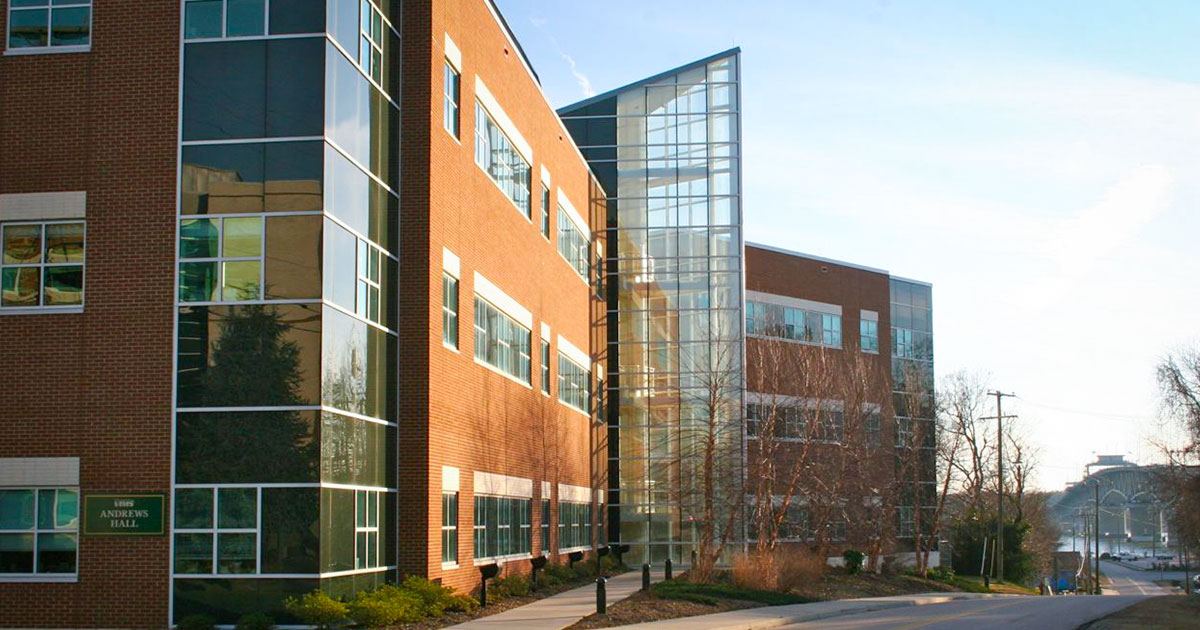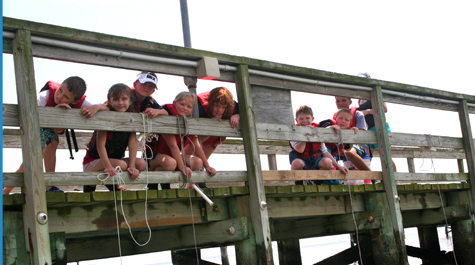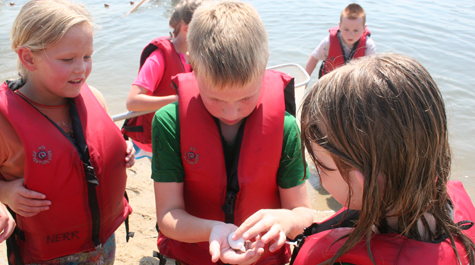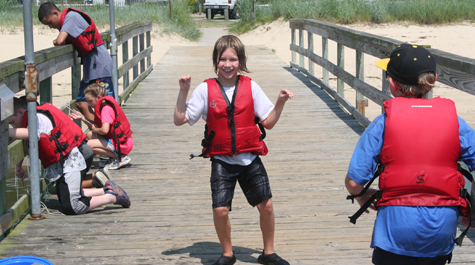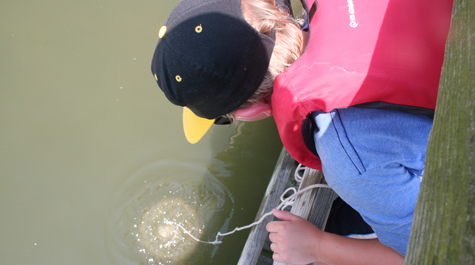VIMS summer camps combine education and fun
Local children swam, splashed, fished, and crabbed their way to becoming stewards of Chesapeake Bay during a series of five week-long summer day-camps offered by the Virginia Institute of Marine Science.
The camps, led by Education Coordinator Sarah Nuss and Education Specialist Jaclyn Miller of the Chesapeake Bay National Estuarine Research Reserve at VIMS, enable children grades 1 through 8 to gain hands-on experience and are tailored to complement the learning stages of each age group. Started in 2009, the camp program is made possible by a gift from an anonymous private donor to the VIMS Foundation.
During two separate weeklong camps in July, a total of 48
rising 3rd- and 4th-graders—also known as the “Bay
Buddies”—came from Gloucester, Mathews, and surrounding areas to learn about
ways to protect and preserve Chesapeake Bay. Students were split into groups and
spent the week studying some of the major issues affecting Bay health. Topics
included pollution, marine debris, overfishing, and habitat loss.
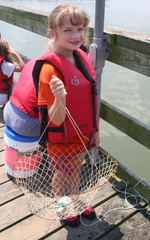
“My topic was overfishing which means you catch too many fish at once and the variety of fish gets lower and lower,” says camper Jacob Brauner.
Campers learned all about the diversity of fishes during a tour of the Nunnally Ichthyology Collection and VIMS aquarium, and got a first-hand look at local fishes during a full day of seining, fishing, and crabbing in the York River.
“My favorite part of camp was when we got to get in the water and catch lots of fish, and some jellyfish too,” says camper Rachael Morgan.
“I liked camp a lot because I got to go seining, and I caught a seahorse and a hogchoker which was really cool,” adds Brauner.
“Our goal for the “Bay Buddies” camp was to teach them about issues affecting the Bay and how they can become stewards for it,” says Nuss. “Our overall goal for all of the camps is to increase student interest in marine science and help them to understand their local environment.”
Summertime at VIMS
While the “Bay Buddies” camp caters to rising 3rd- and 4th-graders, three other VIMS summer camps provide learning opportunities for students in higher and lower grades.
In mid-June, 15 rising 1st- and 2nd-graders—the “Sea Squirts”—came to VIMS’ Gloucester Point campus to explore salt marshes and wetlands, investigate the underwater world of Chesapeake Bay, and dip net in a variety of sandy bottom locations.
In late June, it was time for 5th- and 6th-graders—better
known as the “Chesapeake Champions”—to discover what lies within the Bay.
During their week at VIMS, the Champions studied and explored freshwater,
brackish, and saltwater habitats. Campers also participated in outings on the
Bay, including a boat trip to the Goodwin Islands.
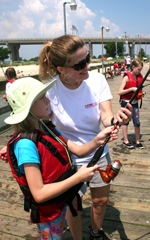
VIMS summer camps will come to a close this week with “Estuary Explorers,” which caters to rising 7th- and 8th-graders. As the only overnight camp of the summer, students travel to VIMS’ Eastern Shore Lab in the seaside village of Wachapreague to explore Virginia’s seaside bays in depth.
“The summer camps are my favorite time of year because we get to see the students everyday and witness first-hand the changes we are able to make in a week’s time,” says Miller. “You get to see their excitement in sharing our love of the subject matter, and see it reflect in them. It’s pretty neat.”
“When the parents come up to me and tell me how much their child learned at camp, it means a lot to me,” says Nuss. “That is how I know these camps are making a difference.”
Funding and participation
The VIMS summer camp program is made possible by a gift from a private anonymous donor to the Virginia Institute of Marine Science Foundation, a nonprofit 501 (c) (3) organization that supports the education and research missions of VIMS. The gift was made primarily to benefit children from Gloucester and Mathews counties, but the camps have attracted applicants from as far as New Jersey, California, and Oman.
Participants in the “Sea Squirts” and “Bay Buddies” camps are selected using a lottery system in which campers are randomly selected from the pool of applicants. “Estuary Explorers” and “Chesapeake Champions” must submit a statement of interest that is reviewed by a committee who decide which students will attend.
